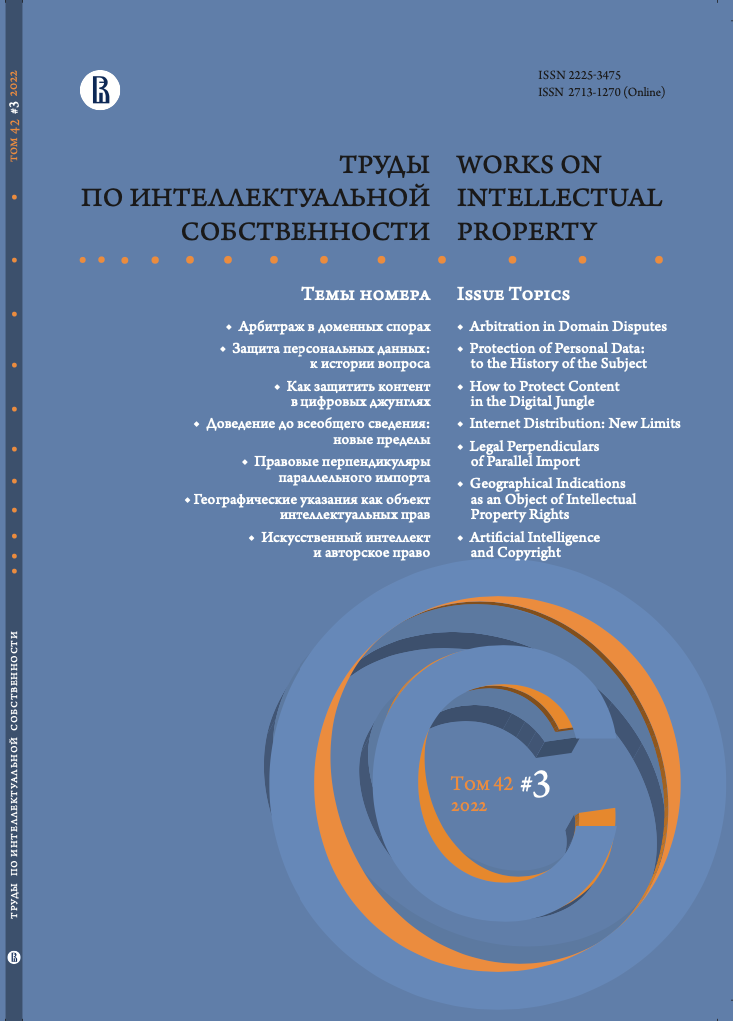LICENSE AGREEMENTS FOR STANDARD-REQUIRED PATENTS (FRAND-LICENSES)
Abstract
This article concerns to license agreements, the subject of which are standard-essential patents, on fair, reasonable and non-discriminatory terms (FRAND-licenses). The legal institutions of standard-essential patents and FRAND-licenses are the remedies of the existing in patent law conflict of interests between right holders and users of innovations, FRAND-licenses are quite actively used in commercial relations between innovative companies in foreign legal orders. These legal institutions also concern the actual and important issue of the boundaries of patent and antimonopoly (competitive) law in regulating the innovation sphere. Today, there is no single approach to the legal regulation and enforcement of the FRAND licenses and its conditions, there is no single interpretation of the nature of the FRAND license in the legal science. The purpose of this research is to understand the meaning of requirements of fairness, reasonableness, and non-discrimination in FRAND licenses. To achieve this purpose the author poses the task to identify the existing approaches to define the terms in FRAND licenses in foreign legal orders. The author carried out a legal comparative analysis of foreign legal doctrine, judicial practice, and the policies of standard- setting organizations. Based on the results of the research, the author made a conclusion that FRAND license is a sui generis type of licenses in patent law, which is aimed at balancing the interests of right holders and users of standard-required patents in the production of complex innovative products. The peculiarity of the FRAND license is the special requirements for the conditions of patent licensing. The author studied the application of patent, contract, and competition law to FRAND licenses and set out problems related to the definition of their conditions and resolution of disputes.


